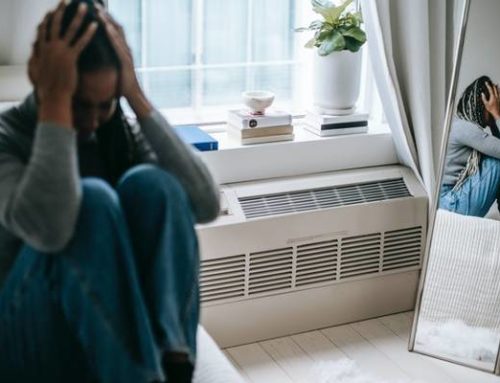The most common mental health conditions in the world are anxiety disorders. This includes adolescents and teens. At first glance, you might think this has led to a dramatic increase in focus and awareness. However, anxiety is so common as to become expected. When so many folks feel anxious, it tends to downplay the severity of the issue.
 It’s even tougher for a teen. The teenage years are when we most expect angst, drama, and unpredictability. Teenage anxiety is harder to identify and even when it is, it’s viewed as a “phase.” Meanwhile, anxiety disorders in teens have been on the rise for at least the past decade with about two-thirds of teenagers reporting that they feel overwhelmed.
It’s even tougher for a teen. The teenage years are when we most expect angst, drama, and unpredictability. Teenage anxiety is harder to identify and even when it is, it’s viewed as a “phase.” Meanwhile, anxiety disorders in teens have been on the rise for at least the past decade with about two-thirds of teenagers reporting that they feel overwhelmed.
Why Is Anxiety So Common Among Teens?
The transition from adolescence to adulthood was daunting long before the arrival of the internet, smartphones, and social media. A human being is trying to manage a flood of hormones while also going to school, dating, making friends, and, well… planning their future. Elevated anxiety levels are inevitable at some point. But today, you can add in:
- Notifications: All day, every day, the texts, likes, and DMs never seem to stop.
- Information Overflow: From your friends’ updates to a steady flow of “news,” how much is too much?
- Social Media: Scrolling your way through carefully curated profiles is a recipe for envy and stress.
- Pornography and Video Games: Welcome to the “new normal.”
- Lack of Face-to-Face Contact: Today’s teenagers are often lacking the social skills that can help them stave off anxiety
When you combine the long-standing realities with digital changes, it becomes essential that parents recognize when their child is struggling with a possible anxiety disorder.
5 Common Symptoms of Anxiety in Teens
1. Changes at School
This can range from lower grades and testing scores to the expression of dread about going to school. Teens with anxiety typically struggle with decreased concentration, too.
2. Withdrawal
Take note if your child chooses to stay home alone. They seem interested in activities that once excited them and will avoid anything that might trigger stress.
3. Physical Signs
Anxiety shows itself in our bodies, too. A teenager may appear uninterested in eating even their favorite foods. They also display sleep disturbance and unexplained physical complaints — from headaches to muscle aches to nausea. The more obvious symptoms of anxiety may involve shaking, sweating, and being easily startled.
4. Risky Behaviors
For example:
- Alcohol or drug use
- Dangerous driving
- Unsafe sex
- Criminal activities
- Running with a new crowd
5. Shifts in Mood and Personality
Pay close attention to what your teen talks about to you or others. Are they sliding into negative self-talk? Do you notice them expressing worries about their life and focusing mostly on negative thoughts? Do they harbor fears about the future? Engage with them about any of this and gently suggest steps they can take.
Possible Self-Help Steps
Let’s break this into two brand categories:
- Personal Interactions: By being openly and genuinely curious about their interests, invite and encourage them to have conversations in real life as often as possible. This usually requires the introduction of device breaks. By slowly connecting with them, their interests and emotional life, you might be able to also guide them to learn how to self-limit when it comes to technology. It really helps if you and your family lead by example.
- Self-Care: Spending a lot of time online is emotionally stressful and physically detrimental. As your teen takes more tech breaks, explore and gently guide them to use that time to do something physical — preferably outside. In addition, be a family who opts for healthy food choices and steady sleep patterns.
Most importantly, don’t brush off anxious behaviors. Left unchecked, they can escalate quickly. If you need guidance about all of this, I’m just a phone call away. To learn more about how we use qEEG swLORETA neurofeedback training to help teens who experience anxiety please follow this link Liliana Sacarin – Anxiety Treatment – Seattle, WA




